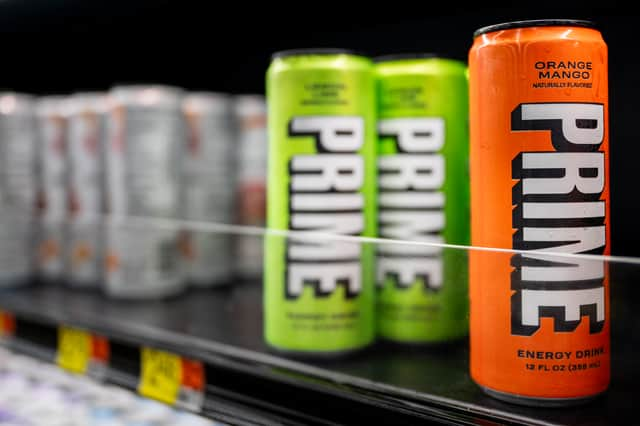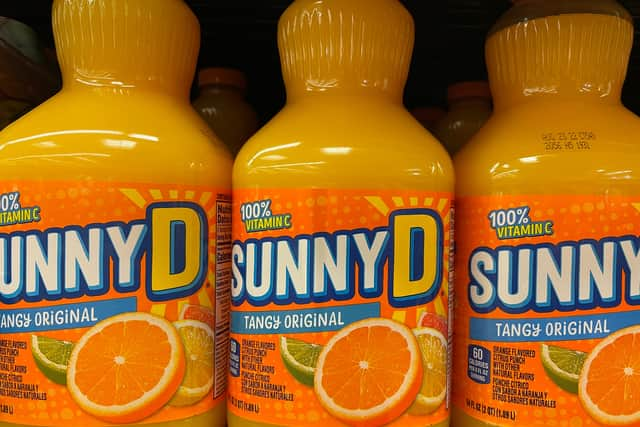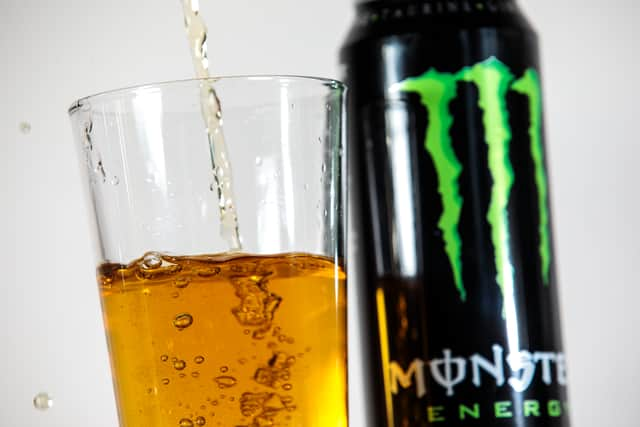Prime Energy health concerns remind us of past drinks Sunny D and Monster Energy


It's quite simply been the 'must have' product for kids since it was launched early last year. And there lies the problem.
Prime - which is the brainchild of YouTubers Logan Paul and KSI - comes in colourful bottles and cans that have clearly caught the eyes of a younger market but as has been the problem in the past, the awareness of just how unhealthy the product is, is now coming to light.
Advertisement
Hide AdAdvertisement
Hide AdIt's not the first time a food or drink product has landed on the market and become a craze among teenagers, and we're already seeing a clampdown on Prime in some places.
The energy drink version of Prime has now been banned in Canada for its high caffeine content which exceeds the country's limit of 180mg per serving.
To put that into perspective, a can of Red Bull has around 80mg of caffeine, while a can of Coca-Cola has 32mg.
And then there's also been a recent incident where a parent of a child at school issued a warning over Prime after the pupil suffered a 'cardiac episode' after drinking Prime Energy.
Advertisement
Hide AdAdvertisement
Hide AdBut other products from the past also sparked a health concern like Prime currently seems to be doing. NationalWorld takes a look back
Sunny D


A nostalgic drink with a now mythical legacy. Sunny D is still on sale in the UK - following a major rebrand - but the brand seems unable to shake its past connotations of unhealthiness.
Back in 1999, Sunny D (then Sunny Delight) hit headlines after it admitted that drinking too much of it could turn a child's skin yellow. A four-year-old girl from Wales who had been drinking 1.5 litres of the drink a day was "yellow in colour"
Her condition was caused by beta-carotene, an additive that boosts the drink's orange colour. But this wasn't necessarily a damaging health concern as the skin would eventually return to its normal colour.
Advertisement
Hide AdAdvertisement
Hide AdBut from this stemmed the revelations about how Sunny D had very little juice content - just two per cent citrus juice content - and also had ten grams of added sugars - half of your recommended daily value.
Then there's the fact that Sunny D has acesulfame potassium in it - a calorie-free artificial sweetener. It is calorie-free because the body can't break it down however and the ingredient has been linked to an increased cancer risk in adults.
Sunny Delight was marketed as "the great stuff kids go for". That slogan didn't last.
Monster Energy


Another more recent drink which has caused health concerns over its high caffeine content is Monster Energy.
Advertisement
Hide AdAdvertisement
Hide AdLaunched in 2003, the drink also has 180 mg of caffeine in each 500ml can.
But it wasn't until more recently that concerns mounted. In 2015, the Food Safety and Standards Authority of India banned the sale of Monster because it contained high levels of caffeine and ginseng.
The drink has also been proven to cause a rapid heartbeat, high blood pressure, and dehydration.
The UK government has also taken action. In 2018, the government announced a ban on the sale of energy drinks with high-caffeine levels to children under the age of 16.
While concerns around Prime are in their early stages, there are already calls for the Food and Drug Administration (FDA) in the US to investigate Prime Energy further.
Comment Guidelines
National World encourages reader discussion on our stories. User feedback, insights and back-and-forth exchanges add a rich layer of context to reporting. Please review our Community Guidelines before commenting.
